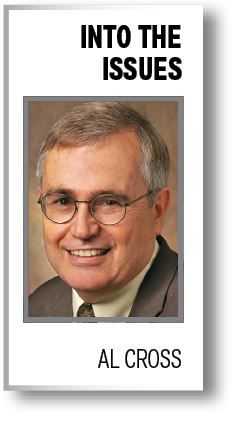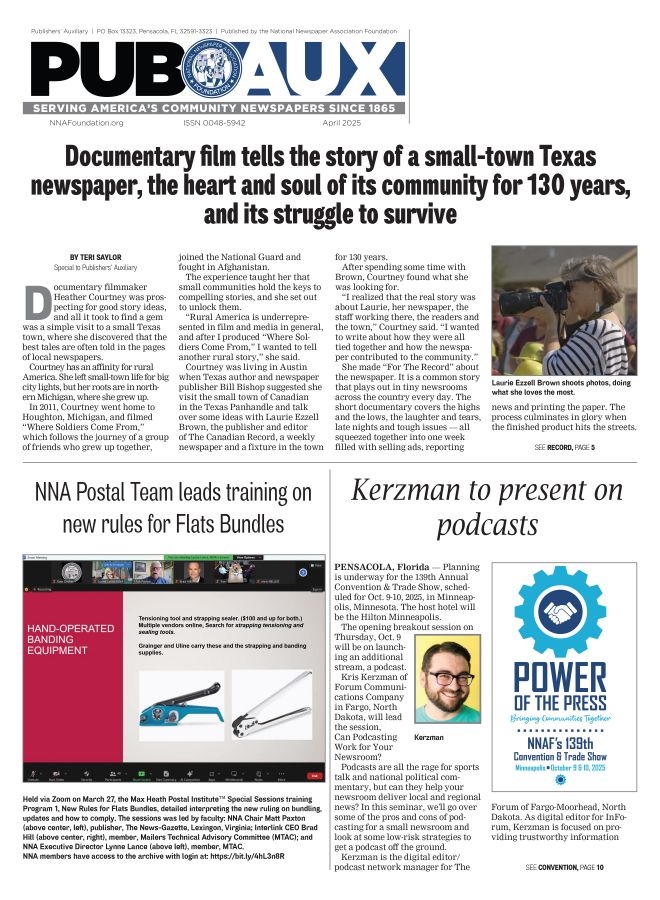‘60 Minutes’ report on crisis in local journalism gives local media opportunity to elaborate, reinforce message
Al Cross
Mar 1, 2022


The local news crisis got its biggest play yet to an American audience the evening of Sunday, Feb. 27, as CBS's “60 Minutes” did a story that reached perhaps 9 million viewers. It didn't make the best case ever for local journalism, but as the show usually does, it told the tale through some compelling personal stories.
Most of those stories, and the belief that “journalism is essential for the survival of American democracy,” as one former reporter put it, are familiar to readers of The Rural Blog. But they are not well known by many Americans, so for local news media, the network report is an opportunity to reinforce the message, and elaborate on it.
The story's only evidence of “increased corruption by local officials,” was a rather old story: the 2010 revelation by the Los Angeles Times (uncredited by CBS) that officials in the small L.A. County city of Bell were paying themselves exorbitant salaries after “the local newspaper there shut down,” as CBS put it. Actually, the area had a paper, but it was covering so many municipalities that Bell got little attention.
There's plenty of other evidence that lack of local journalism is bad for taxpayers, such as studies showing higher interest rates for bond issues, fewer candidates for local office and more straight-ticket voting and political polarization. But those points didn't have compelling video, like the footage “60 Minutes” used, showing enraged citizens at a meeting of the Bell City Council.
Beyond academic studies, in other places with shriveled journalism we have seen the election of bigoted but unprofiled candidates, parroting of politicians' press releases, and use of disaster funds with little oversight. And lawsuits to get public records are no longer filed mainly by the news media. Meanwhile, partisan websites, often masquerading as news media, fill the vacuum. Even some politicians have voiced concern about reduced coverage of elections.
At the same time, local reporters have also exposed such evils as pharmacies' role in the opioid epidemic and ripoffs by contractors, forced resignation of corrupt officials, and there are examples of newspapers that have improved their bottom lines through accountability reporting. So, there's a much larger story to tell about local news than CBS did, but its report tees up the ball for local news media to remind their audiences of their value to their communities.
For some of us in journalism, the headline on the story could have been what Steven Waldman of Report for America said near the end of the report: “We need a dramatic increase in the commitment of foundations, and philanthropists and donors like you and me to actually supporting local news.”
Waldman elaborates on that in a two-part essay for Columbia Journalism Review, in which he writes, “Our goal should be to create a better local news system than we had in the past, including far better service for communities of color and for rural areas. To make that local news system a reality, I believe that we need to add 50,000 local reporters.” He also calls for better business models, enlightened public policy and creating new methods of financing news operations, such as tax credits for organizations that take over local newspapers.
The more philanthropy the better, from big grants to small donations, reader memberships and so on. That said, grants have a way of running out, so they are more likely to be bridges to transformed business models for newspapers as they shift to an online existence — gradually, so they can still enjoy the revenue generated by print, their main revenue source, as print fans gradually leave the scene. And that's a reality of the newspaper business that papers need to explain to their readers, too.
For those who didn't see “60 Minutes,” read about a few excerpts below:
The first protagonist was Evan Brandt, sole reporter at the Pottstown Mercury, which has won two Pulitzer Prizes and "at one time had dozens of reporters;" anyone in the town of 23,000 could walk into the newsroom and give a tip for a story to hold local officials and institutions accountable. Now Brandt covers 21 eastern Pennsylvania towns and nine school districts from home.
"He says the worst culprit is the hedge fund, Alden Global Capital," the second largest owner of U.S. newspapers, which "has been called a vulture, bleeding newspapers dry." Brandt said he went to Alden CEO Heath Freeman's home on Long Island to ask "What value do you place on local news? And I'm not talking about money." But Freeman walked off before Brandt could pose the question.
As the industry shrinks, correspondent Jon Wertheim asked, "to what extend does democracy shrink with it?"
Former Chicago Tribune reporter Gary Marx said, "This is an attack on our democracy," which papers serve by "holding our leaders accountable." He and colleague David Jackson investigated Alden before it bought the paper and found profit margins as high as 30 percent in one market. "We felt that Alden didn't realize the civic trust that's embedded in this profit-making machine," Jackson said.
CBS paraphrased Freeman as saying that "Alden is committed to providing robust, independently minded local journalism and that it's time for tech giants to start paying for the 'billions of dollars' they're making off of news publishers' content."
The story had five RFA reporters in a group interview, including Chris Jones of 100 Days in Appalachia, who covered the Jan. 6 riot because he had developed sources among extremists. The former Marine has a community journalism ethic: "These are our neighbors, you know? We're not writing about someone I'm never gonna talk to again. They're people before they're interview subjects."
Al Cross edited and managed rural newspapers before covering politics for the Louisville Courier Journal and serving as president of the Society of Professional Journalists. He is the extension professor of journalism at the University of Kentucky and director of its Institute for Rural Journalism and Community Issues, which publishes The Rural Blog at http://irjci.blogspot.com.










